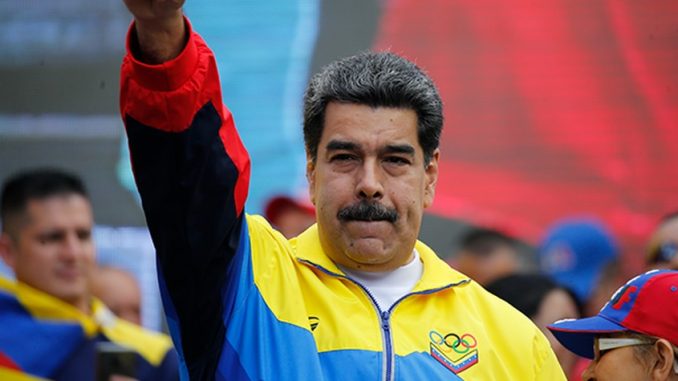
For the first time in 15 years, Venezuela’s ruling socialist government allowed election observers into the country. Those observers concluded the elections were, at best, a mixed bag. Not surprisingly the socialists won most races thanks largely to the ways in which Maduro’s regime has tilted the playing field.
The government showed that by banning the most prominent and popular opposition leaders from running for office, dividing opposition parties, encouraging voter apathy and keeping a loyal minority dependent on government handouts, it can win elections without resorting to outright fraud — even with minimal popular support.
The ruling Socialist Party won at least 19 of Venezuela’s 23 governorships, as well as the majority of mayoral offices, despite presiding over a destroyed economy and having the support, polls show, of only about 15 percent of the people. One in five Venezuelans has fled the country under Mr. Maduro’s rule, and 95 percent of those who remain don’t earn enough to meet basic needs, according to a study by the country’s main universities.
The ruling party’s sweep was greatly aided by the divisions within the opposition. Some opposition leaders boycotted the vote, as most of them did in other recent elections. Those who chose to participate divided votes with factions that had made pacts with Mr. Maduro or adopted a softer line against the president to take advantage of the economic liberalization that he has allowed in recent years.
Despite the effort to appear less like a one-party dictatorship, there was plenty of evidence the government was essentially cheating. For one thing, state media in Venezuela doesn’t give equal coverage to opposition figures. For another, in a country where the government hands out food only to loyalists, failure to vote could result in going back on the Maduro diet.
Human rights advocates on Sunday shared reports of “red points,” stations outside polling centers where state employees scan the IDs of voters who receive government benefits. Nelson Freitez, a human rights advocate who was monitoring elections in Lara state on Sunday, said he saw red points at 10 of the 12 polling centers he visited.
“They manage to intimidate those they have registered to remind them that if they do not vote for the government candidates, they will not receive social benefits,” he said.
While Freitez and another advocate, Yonaide Sánchez, were taking a photo of one site, he said, a group of 20 people surrounded their car, shoved them, tried to take their phones, stole Sánchez’s purse and grabbed her hair.
A day earlier, outside the electoral council building in the center of Caracas, a government employee said she was voting only because she was afraid of losing her benefits.
“They force us to vote or they’ll take away our food boxes,” said the woman, who gave only her first name, Sonia. The food box she receives once a month is part of a program initiated by the government years ago to help workers get basic products. “If it wasn’t for that, I wouldn’t be voting,” she said.
Another reason the socialists may have done so well is that years of serious deprivation has left people willing to accept any slight improvement in their conditions, no matter who delivers them.
“If they promise they can solve the water issue, for good, I will give them my vote,” said the 78-year-old street vendor, who wore a Santa Claus hat as he stood by his eyeglasses stand in the center of Caracas on Saturday.
A voter since age 18, Carusí remembers when elections meant progress. This year’s candidates, pro-government and opposition alike, focused campaign messaging on pledges to fix the failing infrastructure that has left most homes in Venezuela without a reliable supply of water. And all Carusí wants is to be able to shower more than once a week. “This is a hell, what we’re living in,” he said.
It’s a sad situation but one that probably won’t improve any time soon. When you control the flow of food and water to desperate people and back that up with violent loyalists and control of the media, it’s no surprise that the population’s ability to fight back is diminished.
Via Hot Air
